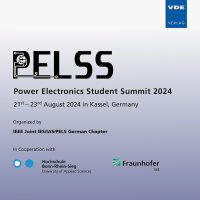Efficiency study of different DCDC-converter designs for use in EV prototypes
Conference: PELSS 2024 - Power Electronics Student Summit
08/21/2024 - 08/23/2024 at Kassel, Germany
Proceedings: PELSS – Power Electronics Student Summit 2024
Pages: 5Language: englishTyp: PDF
Authors:
Behrendt, Jan; Thuermer, Marcel; Heinemann, Jonas; Isfort, Steffen
Abstract:
Transitioning from internal combustion engines to electric vehicles forces developers to put a larger emphasis on efficiency due to the lower energy density of electric energy storage compared to fossil fuels. Besides improvements in storage technologies and electric motors, optimizing power electronics promises a large potential for increasing efficiency. Specifically, the link between the low and high-voltage system. Prototypes, race cars, and production vehicles require a low-voltage system to power onboard electronics in addition to the high-voltage tractive system. An auxiliary low-voltage battery alongside the main battery pack can be utilized to provide power to the lowvoltage system. However, a voltage converter can eliminate the need for additional energy storage. Historically, motorsports act as a proofing ground for new technologies that are eventually implemented in production vehicles. Compared to production vehicles, the footprint, weight, and cost of electronic components have an even larger impact on the performance of a race car. For this reason, we developed a low-cost, compact, and lightweight LLC DCDC tailored for use in a formula student car. We outline the requirements for our specific application and review the design and component choices for our converter. To compare the efficiency of various converters we utilize a test bench comprising DC-power supplies and an electronic load. Using the efficiency data we collected during testing, we show that the developed LLC offers a significant improvement in efficiency over off-the-shelf components.


